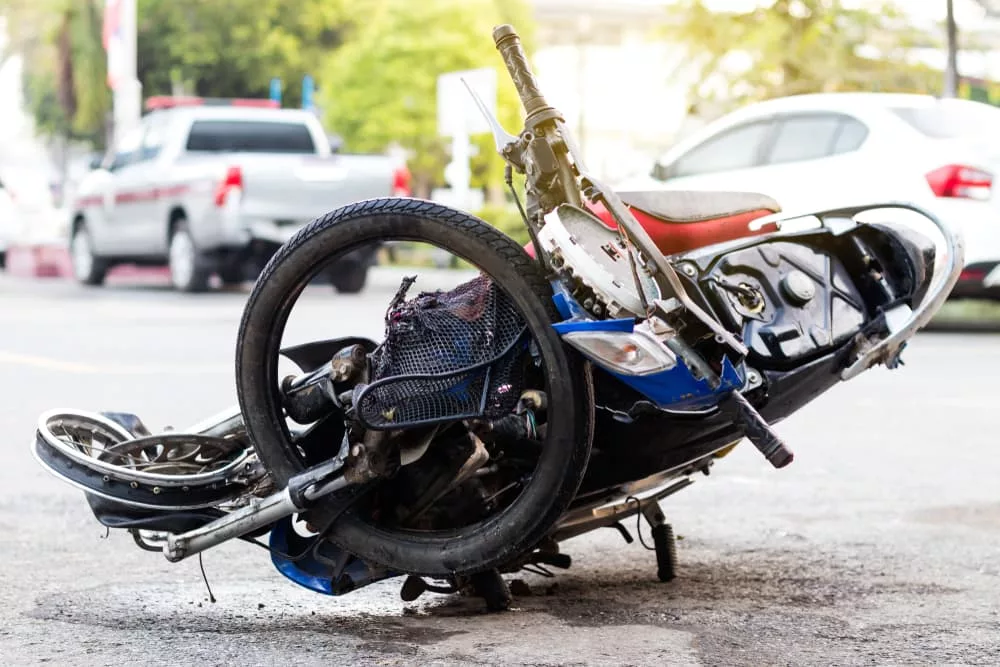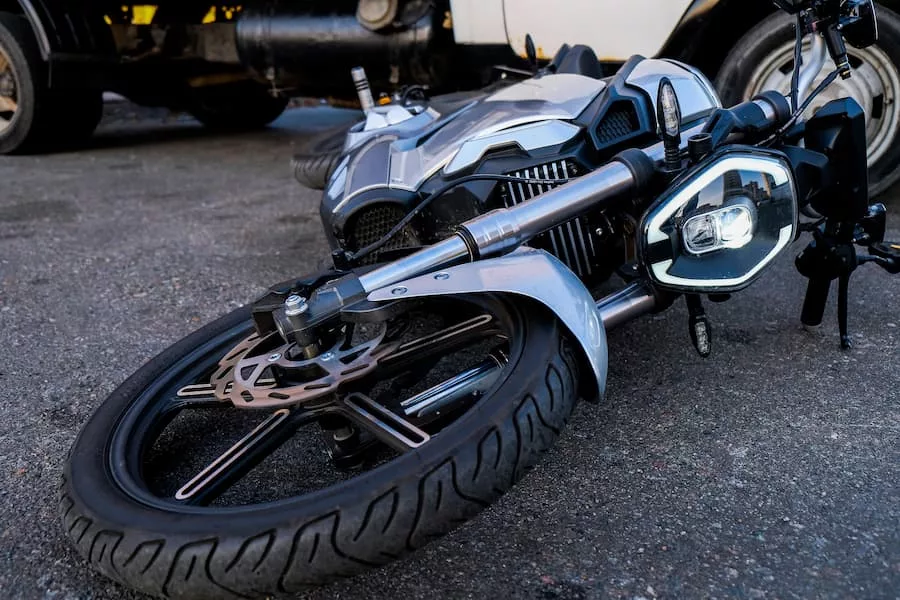Motorcycle collisions are often emotionally and physically devastating because they usually result in serious, sometimes life-threatening injuries. Motorcyclists and their passengers have far less protection than vehicle occupants, so they have a higher risk of severe injuries when collisions occur.
In Florida, all drivers must exercise reasonable care to avoid colliding with other cars, including motorcycles. But motorcycles are small and hard to see in traffic, so it’s easy for drivers to overlook motorcyclists and crash if they are inattentive, drowsy, under the influence, or simply careless. Reach out to a Miami motorcycle accident lawyer.
Florida Traffic Laws
In Florida, many motorcycle collisions happen because drivers don’t follow traffic laws that aim to prevent these accidents.
Some common traffic laws that drivers violate include:
- Right of way. Florida law requires all drivers to stop or yield the right of way to other road users in certain circumstances. If drivers fail to stop or yield to motorcyclists with the right of way, it can lead to severe collisions and significant injuries.
- Turn signals. All drivers must use their turn signals when preparing to change lanes, merge, or turn. A driver who fails to use their turn signal increases the risk of a collision, especially if they don’t notice nearby motorcycle riders.
- Texting and driving. Florida has banned texting and driving because distracted drivers are significantly more likely to cause accidents. Unfortunately, distracted driving remains one of the top causes of all accidents, including motorcycle wrecks. Motorcyclists are far more likely to get hurt in distracted driving accidents because they are harder for inattentive drivers to see.
- Following too closely. Drivers must not follow behind others more closely than is reasonable for traffic and road conditions. Some drivers unknowingly violate this law because they don’t realize how abruptly a motorcycle can stop compared to the average car. When drivers follow too closely and cause motorcycle accidents, victims can seek compensation for resulting injuries.
- Speeding. All drivers must abide by posted speed limits and maintain reasonable speeds given present road conditions. This means drivers must slow down to reasonable speeds if road conditions are poor to avoid collisions. A driver who violates state speeding laws can cause high-speed motorcycle accidents that result in life-changing injuries.
Florida Motorcycle Accident Statistics
Riding a motorcycle is a fun and gas-efficient way to get from point A to point B. Still, it puts you at a unique disadvantage in traffic because motorcycles are smaller and harder to see than other passenger vehicles. The more challenging it is to see another vehicle on the road, the more likely it is that other drivers could overlook it and crash. The National Highway Traffic Safety Administration (NHTSA) says motorcyclists are 28 times more likely than other road users to suffer fatalities in traffic accidents.
Florida is a popular destination for motorcycle lovers because of its warm weather, scenic highways, and popular rallies. Unfortunately, this means that Florida has a disproportionately high rate of motorcycle collisions. In one recent year, more than 9,000 motorcycle crashes occurred in Florida, resulting in 567 fatalities and about 7,500 injuries. Many of these collisions happen because drivers violate traffic laws.
Seeking Compensation for a Motorcycle Collision in Florida
You deserve compensation if someone else’s wrongdoing injures you in a collision. Unfortunately for most drivers, Florida is a no-fault car accident state. However, that classification does not apply to motorcycle collisions.
In a no-fault accident state, most drivers must seek compensation through their own insurance companies and meet specific criteria before they can file claims with the at-fault party’s insurance company. As a result, Florida requires most of its drivers to carry personal injury protection (PIP) insurance, which pays for the policyholder’s own losses in the event of a collision.
Since Florida is a no-fault state, you typically must show the following to file a third-party insurance claim:
- Your injuries exceed the serious injury threshold, meaning they are permanent, cause a substantial and permanent loss of function, or cause significant and permanent disfigurement.
- Your medical expenses exceed the limits of your PIP insurance coverage.
However, PIP coverage is not available to motorcyclists in Florida. Therefore, you do not have to meet the above requirements to seek compensation from a negligent driver in a third-party injury claim.
What to Do Following a Motorcycle Collision
Feeling overwhelmed and confused after someone injures you in a motorcycle collision is normal. However, you shouldn’t let that stop you from protecting yourself.
To take care for your health and preserve your legal rights:
- Seek medical attention. If you haven’t already sought medical attention, you should do so immediately. Even if you feel fine, you could have invisible injuries that aren’t obvious for days or weeks after a collision. Seeking medical attention creates a record of your injuries, which is vital for insurance claims and personal injury lawsuits. It also prevents the other party from arguing that you contributed to your injuries because you failed to get prompt or adequate medical care.
- Contact the police. When you file an insurance claim after an accident, the insurance company will likely request a police report. If the police did not respond to the scene or create a police report, you could submit a crash report yourself on the Florida Department of Highway Safety and Motor Vehicles website.
- Gather evidence. You should collect as much evidence as possible to build a strong case. This includes photos of the accident scene, photos of visible injuries, video footage from dashcams, and statements from eyewitnesses.
- Keep detailed records. Keeping good records is essential because the more evidence you have of your expenses and losses, the harder it is for the other side to refute your compensation claim. You should keep copies of your medical bills, documentation showing lost income, and repair or replacement estimates for the damage to your bike.
- Create and maintain a pain journal. Many people don’t consider the importance of documenting their symptoms after a motorcycle collision. However, doing so can make a massive difference in your compensation claim. This is because a pain journal helps you establish the extent of your injuries and how they affect your daily life to support a pain and suffering claim.
- Consult an attorney. Insurance adjusters usually have extensive experience negotiating settlement claims. Relying on that experience, they often try to get victims to accept quick, lowball settlements that save the insurance company money. An experienced personal injury lawyer can counteract the insurance company’s negotiating tactics to help you pursue a fair settlement. They can also investigate and gather evidence for your case, so you can focus on recovering. A skilled attorney fighting for you can make a substantial difference in the outcome of your motorcycle accident case, regardless of the severity of your injuries.
Third-Party Insurance Claim Process
A third-party insurance claim is when you file a claim with another person’s insurance company. To file a third-party insurance claim with the at-fault driver’s insurance, you usually must start by notifying the insurance company of the collision. When you contact the other insurance company, they might ask you various questions about the accident. Watch what you say when you speak to the insurance company, as the adjuster could use any of your statements against you later.
Every insurance company handles motorcycle accident injury claims differently.
However, the claims process usually involves:
- Filing a demand letter. Usually, your attorney will begin by reviewing the facts of your case to establish who is at fault and how much your claim is worth. Once your attorney determines a fair value for your case, they can send the at-fault party’s insurance company a demand letter. This letter should outline that their driver caused the motorcycle collision that contributed to your injuries. It should also state the amount of compensation you seek and that failing to respond will result in you filing a personal injury lawsuit.
- Assigning of an insurance adjuster. If the insurance company hasn’t already assigned an insurance adjuster to your claim, they likely will once they receive the demand letter. The insurance adjuster’s job is to investigate the collision, determine fault, and decide how much the insurance company owes you if anything.
- Investigating the accident. During their investigation, the insurance adjuster will review various factors to determine whether their driver is liable and how much the case is worth. This could include police reports, witness statements, medical records, and crash scene photographs.
- Responding to your demand letter. Once the adjuster determines whether their driver is at fault and estimates the value of your case, they can either accept, reject, or counter your demand. If the insurance adjuster accepts your demand, you can enter a settlement agreement and get paid immediately.
- Negotiating a settlement. If the insurance adjuster counters your demand, your attorney can respond by starting the negotiation process. Adjusters have lots of experience negotiating, so having an attorney negotiate on your behalf can make a substantial difference in your case.
Filing a Personal Injury Lawsuit
If you cannot reach a fair settlement agreement with the insurance company, you might choose to file a personal injury lawsuit against the at-fault party. In Florida, you have only a few years to file a lawsuit after a motorcycle accident, though the timeline varies in certain circumstances. Failing to file your lawsuit by the appropriate deadline could jeopardize your right to seek compensation in court.
Once you file your motorcycl accident lawsuit, the legal process will start. However, your attorney could still negotiate a settlement agreement before the case goes to trial.
Recoverable Compensation in Motorcycle Collision Cases
The compensation you can recover in a motorcycle collision case varies depending on the specifics of your situation.
When you file your claim, you could seek compensation for:
- Medical expenses. These expenses might include the costs of emergency room visits, hospital stays, follow-up appointments, surgeries, prescription medications, and any ongoing medical treatments necessary for your recovery.
- Accessibility modifications. If your injuries force you to modify your home or car for accessibility, you can seek compensation to cover modification costs. For example, this could include the costs of widening a doorway or installing a wheelchair ramp.
- Lost earnings. If your injuries prevent you from working, you can seek compensation to replace the income you would have earned if not for the injuries. Additionally, if you can work but not in the same capacity as before your injury, you can seek compensation for the difference between your pre- and post-injury earnings.
- Pain and suffering – Motorcycle collisions are traumatic and scary experiences that can result in painful injuries. You can pursue pain and suffering compensation if you experience physical or emotional distress because of your injuries.
- Loss of enjoyment of life. Severe crash injuries can significantly affect your quality of life by preventing you from performing tasks you could easily do before. If your injury has affected your quality or enjoyment of life, you can seek compensation for this intangible loss.
- Loss of consortium. If you get hurt in a motorcycle accident, and your crash injuries affect your relationship with your partner, they can seek loss of consortium compensation for this loss. This compensation aims to make up for the loss of things like your companionship, affection, help around the house, and financial support.
- Wrongful death. No money can make up for losing someone. However, you can and should seek compensation for the financial losses resulting from someone else’s wrongdoing. Wrongful death compensation can cover the loss of that person’s income, benefits, and companionship.
Don’t Let Another Driver Get Away With Violating Traffic Laws
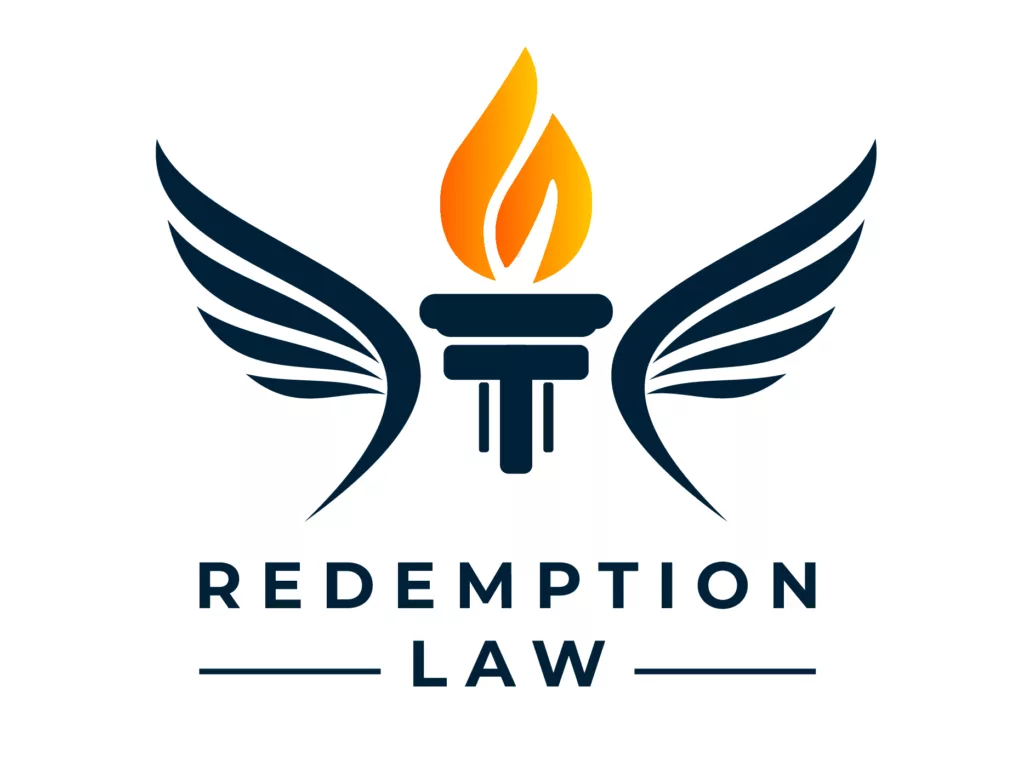
When drivers violate traffic laws, they can cause catastrophic motorcycle collisions. You deserve justice if you got hurt in one of these collisions. You should never have to suffer because of another person’s bad choices, so speak to a knowledgeable personal injury lawyer as soon as possible after a motorcycle accident to learn more about your legal options. The sooner you do, the more they can help you.
Related articles
Related articles Related articles Related articles Related articles Related articles Related articles Related articles Related articles Related articles Related articles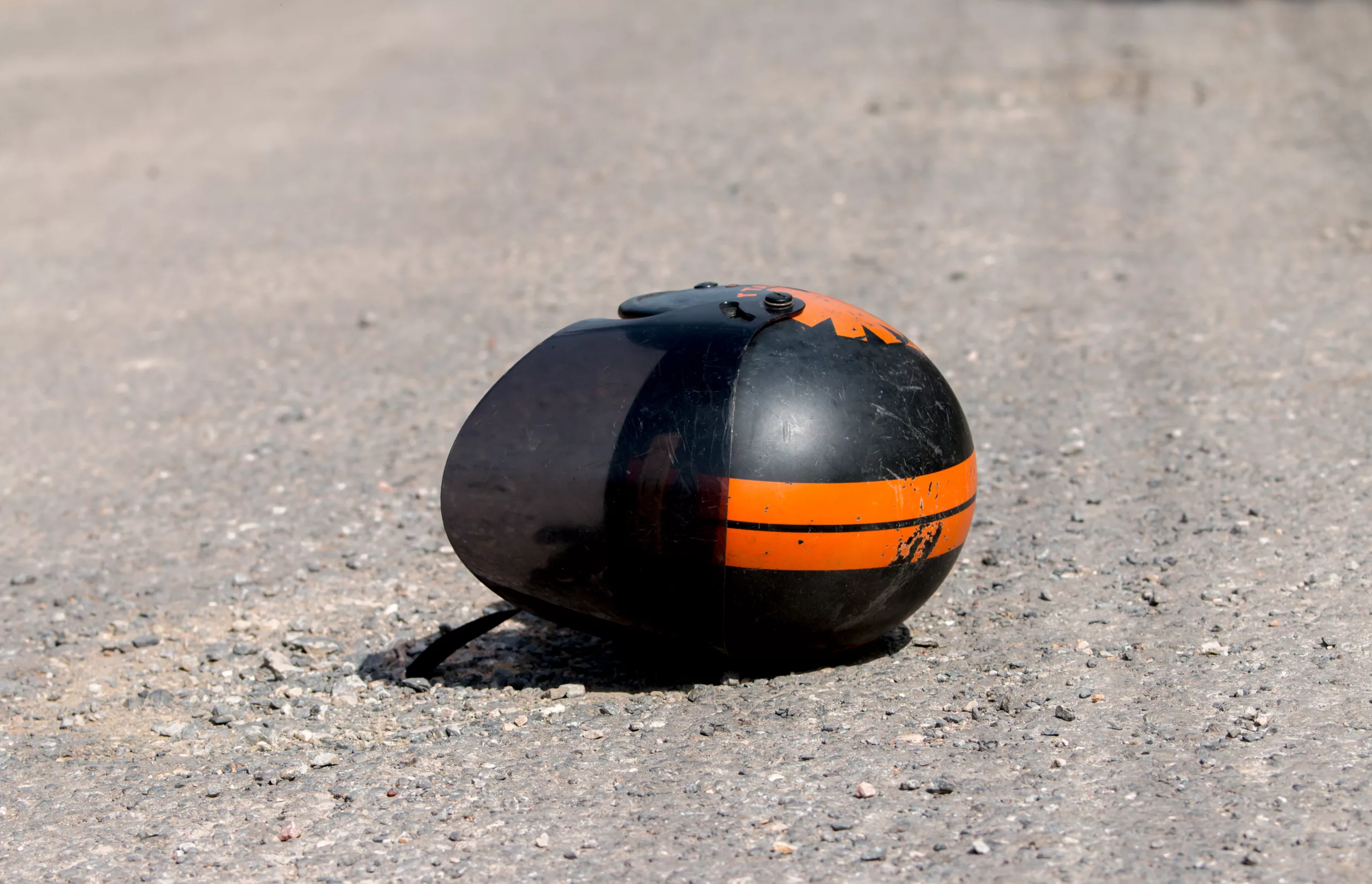
Motorcycle
16 Apr 2024
What Happens if a Road Hazard Causes My Motorcycle Accident?
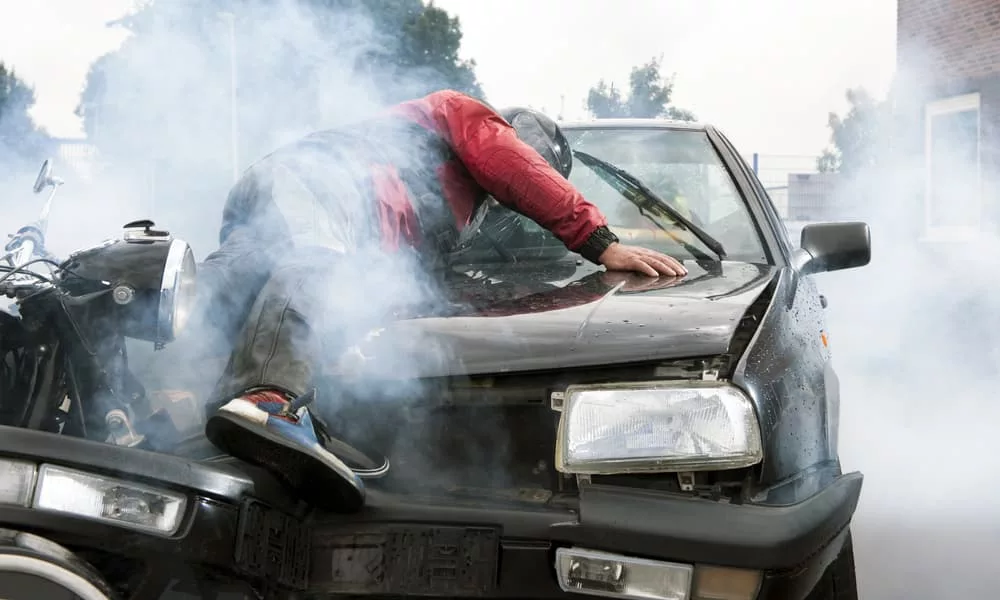
Motorcycle
04 Oct 2023
What Is the Average Payout for a Motorcycle Accident?
